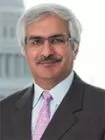In Short
The Situation: In November 2017, Robert Mugabe, the only leader Zimbabwe had known in 37 years, was ousted from power.
The Development: Will this change in leadership usher in a new era of good governance and economic development, or mean more of the same authoritarian government that Zimbabwe has known for many years?
Looking Ahead: What should investors
considering Zimbabwe as a destination be thinking about? What are
current risks, and what are positive signs to look for in the
coming year?
After 37 years of increasingly autocratic rule, Robert Mugabe resigned as president of Zimbabwe on November 21, 2017. The resignation
followed Mugabe's house arrest by the military a week earlier,
his ouster as head of ZANU-PF—the party he had led since
before independence from Britain in 1980—two days earlier,
and the near certainty of impeachment if he tried to retain
power.
But will the departure of Mugabe, the only head of government Zimbabwe had known since independence, usher in an era of improved governance and increased economic opportunities? It is, of course, too early to tell, but a number of factors bear watching and may provide an indication of the country's direction and prospects.
Acting President Emmerson Mnangagwa served as a loyal Mugabe deputy over five decades, until Mugabe fired him as first vice president on November 6, 2017. Mnangagwa, known as The Crocodile for his political savvy, has his own history of ruthlessness and has been accused of being responsible for crackdowns and massacres since the early years of independence. He has, however, more recently been perceived as a business-friendly figure in government and is approximately 20 years younger than Mugabe. Mnangagwa has stated his intention to serve out the remainder of Mugabe's term, until the national elections that are to be held by September 2018. If those elections are held on time and are judged as fair, an important political step forward will have been achieved.
What to Watch
Economic management and business environment matters bear watching. From the late 1990s until 2015, Zimbabwe suffered from a period of fiscal mismanagement and hyperinflation. After abandoning the printing of Zimbabwe dollars in 2008, Zimbabwe officially "demonetized" the use of its own currency in 2015. The U.S. dollar is now used for 90 percent of transactions, and inflation has been held to single digits in recent years. Zimbabwe remains a poor country, with per capita income of around $2,200, although it is not considered by the United Nations as among the 47 Least Developed Countries. It is one of the less business-friendly countries in the world, according to the World Bank. Similarly, Transparency International and others consider Zimbabwe among the more corrupt countries in the world. Its courts, while maintaining a degree of independence from the executive branch during the Mugabe years, are slow-moving and not always viewed as objective.
Future efforts to improve the business climate, control corruption, and improve the courts will indicate a more welcoming atmosphere to investment.
Opportunities and Risk Mitigation
Yet opportunities exist. Opportunities in the mining sector, notably gold, may lure further investment. Last year, mineral exports topped $2 billion and are climbing. Years ago, Zimbabwe was a major exporter of agricultural goods. If uncertainties in land ownership policy can be addressed, opportunities in the agricultural sector could grow significantly. If political stability increases, the tourism sector can also be expected to rebound. Traditionally, the Zimbabwe side of Victoria Falls has been the preferred viewing location, although with Zimbabwe's travails, more tourists lately have visited the Zambia side of the Falls.
While Zimbabwe has existed as a near-pariah state for some years due to Mugabe's autocratic ways, it was by no means cut off from international commerce. In recent years, its economy and popularity as an investment destination have in fact somewhat improved.
U.S. government sanctions as detailed by the Office of Foreign Assets Control ("OFAC") are in place, although they are not insurmountable. The Zimbabwe sanctions program imposes targeted sanctions, prohibiting U.S. persons from dealing with designated persons/entities (there are 141 of them, including Acting President Mnangagwa) and any entity in which blocked persons own, whether individually or in the aggregate, directly or indirectly, a 50 percent or greater interest, regardless of whether they are specifically designated. The EU has similar restrictions in place that should be considered.
Mugabe's party remains in power. Those who were influential before Mugabe's demise remain influential. Thus, from a sanctions perspective, it would appear unlikely that "after Mugabe" is going to be any different than "during Mugabe," at least in the near term. Any planned involvement with individuals and entities in Zimbabwe will still require careful vetting.
Investment Protections
Zimbabwe has signed numerous bilateral investment treaties ("BITs"), although most are not in force. However, judicious utilization of selected BITs—at the beginning of an investment—may nonetheless provide an aggrieved investor with recourse to investor-state arbitration should certain disputes arise. Additionally, Zimbabwe is a contracting state to both the ICSID Convention and the New York Convention on the Recognition and Enforcement of Foreign Arbitral Awards. The Zimbabwe Arbitration Act also provides for local enforcement of foreign arbitral awards, subject to some conditions. The Zimbabwe Investment Authority provides information to potential investors and maintains a one-stop shop to facilitate investment.
Conclusion
While the demise of Robert Mugabe's regime is viewed by
almost all as a step in the right direction for Zimbabwe, it is no
guarantee that all subsequent steps will be similarly positive.
However, the coming year could be a propitious time to consider
opportunities, and investors should be ready to act should current
progress continue.
Three Key Takeaways
- For the foreseeable future, the U.S. government's Zimbabwe sanctions program will be a complicating factor for investors considering Zimbabwe. However, with careful due diligence, the sanctions can be successfully navigated in most cases.
- As with other emerging and frontier markets, a careful plan for risk mitigation should be considered. Knowledge of protections that bilateral investment treaties may provide in the appropriate structuring of investments can mitigate certain risks.
- Zimbabwe has many of the makings of a successful economy: valuable minerals, good agricultural land, and a per-capita GDP already higher than most African countries. The key will be how Zimbabwe's new leadership navigates the political and economic challenges at hand and deals with the aftermath of 37 years of largely one-man rule.
The content of this article is intended to provide a general guide to the subject matter. Specialist advice should be sought about your specific circumstances.




